If you are working with PHP in object-oriented programming, it is crucial to use a clear and structured naming convention. Good naming conventions enhance the readability and maintainability of your code. There are some generally accepted practices that can help you remain consistent when naming class names, variables, and methods. In this section, we will dive deep into these best practices.
Key Insights
- Class names should start with a capital letter
- Constants are always in uppercase
- Variables start with a lowercase letter
- Methods should start with a lowercase letter and a verb
- The use of camel case improves the readability of multi-part identifiers
Step-by-Step Guide
1. Header for Class Names
The first point to consider is the naming of classes. The class name should always start with a capital letter. This makes it easier to distinguish between classes and variables. When naming the file, ensure that the filename reflects the class name, e.g. Conventions.php for a class Conventions.
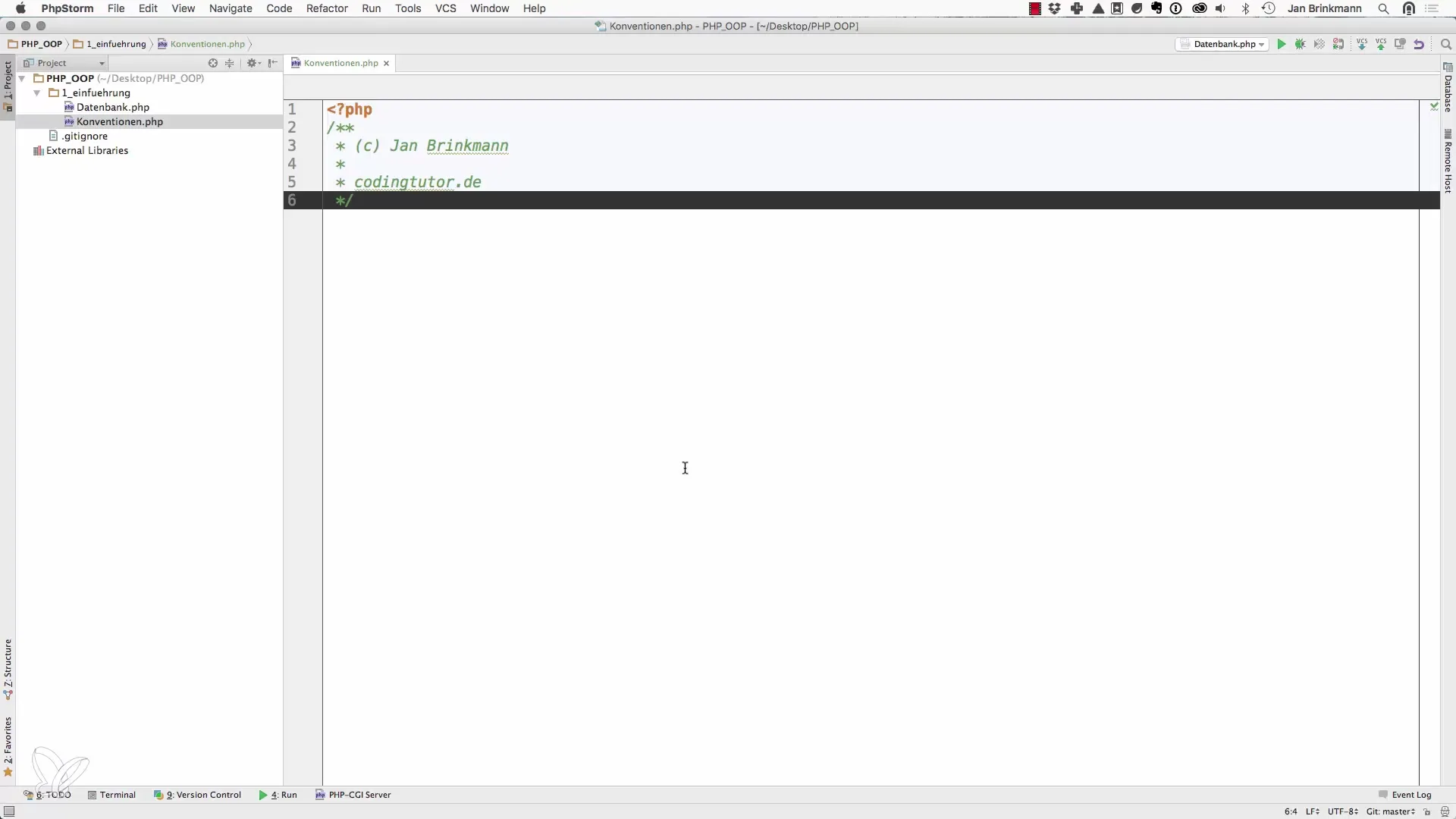
2. Constants
Another important aspect is constants. To recognize them, they should always be written in uppercase. A typical naming could look like this: const TEST = 'Test';. This style is widely accepted and promotes consistency in your code.
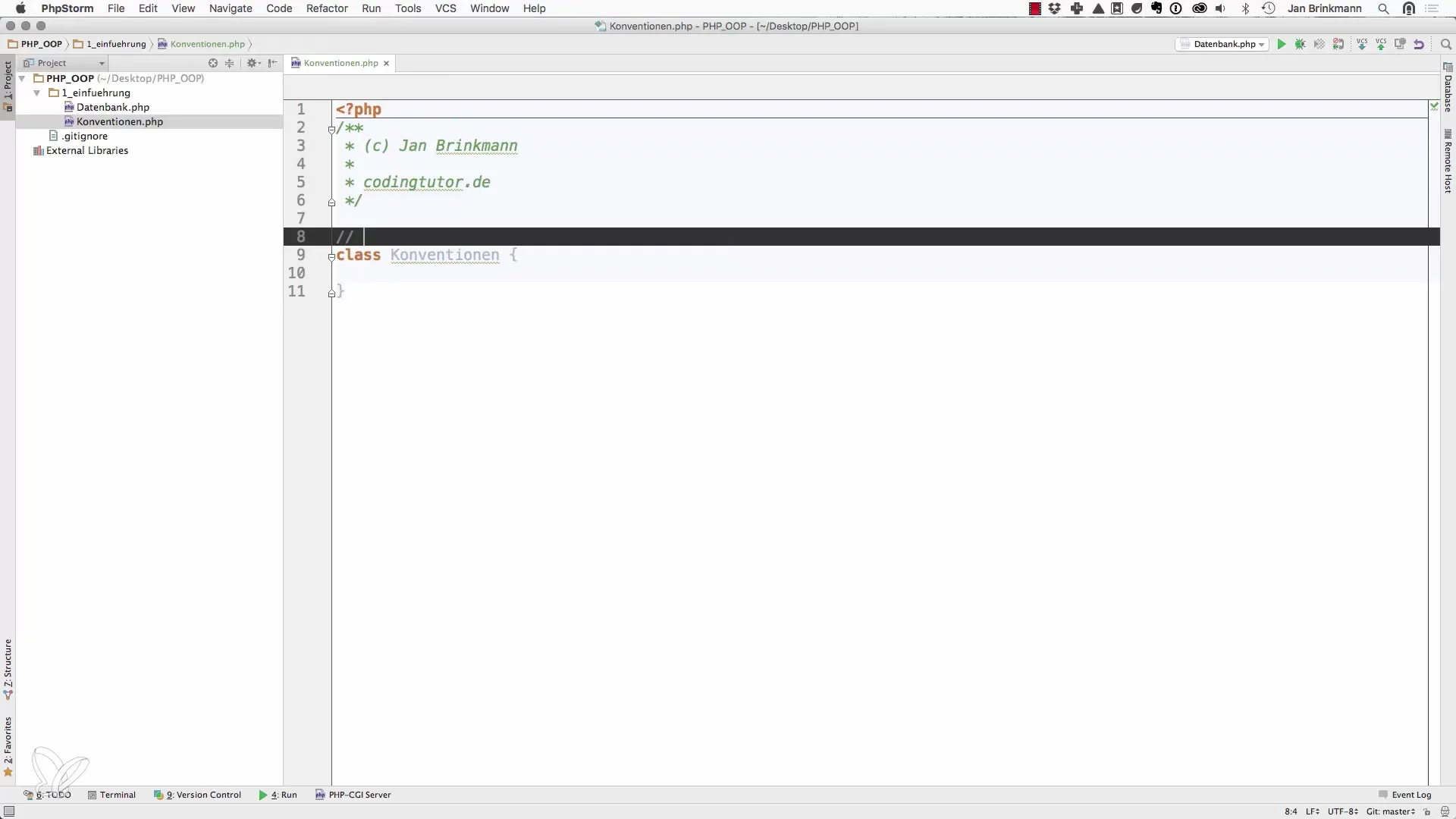
3. Variables
When naming variables, start the name with a lowercase letter. For example, a public variable could be named public $name;. This convention helps you distinguish variables from classes and constant values.
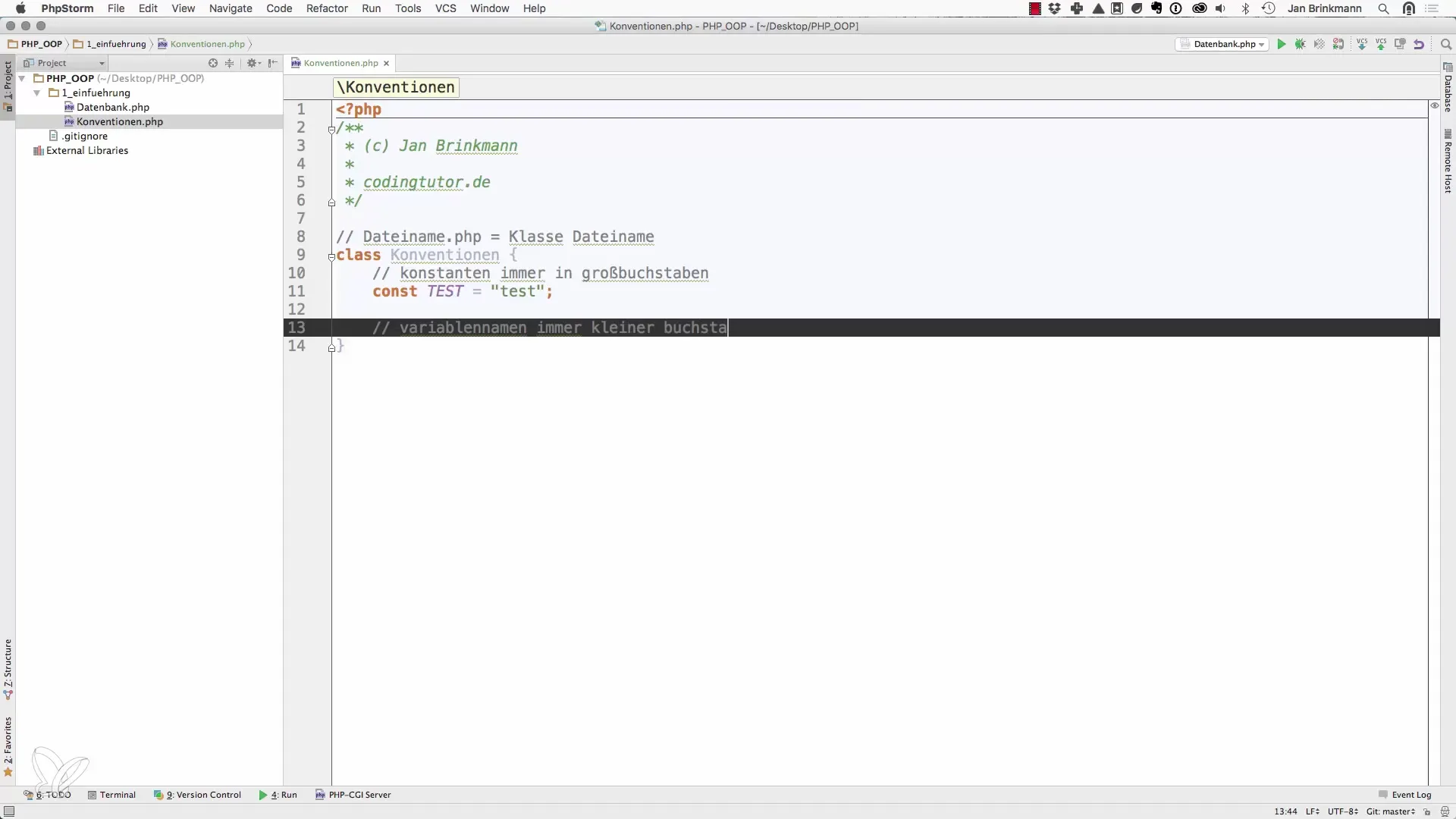
4. Naming Methods
When naming methods, there are some rules to consider. The first letter of the method name should also be lowercase. A good example could be public function getName;. An effective practice here is that method names usually begin with a verb. In your example, the method could be called "gets" or "fetches" the name.
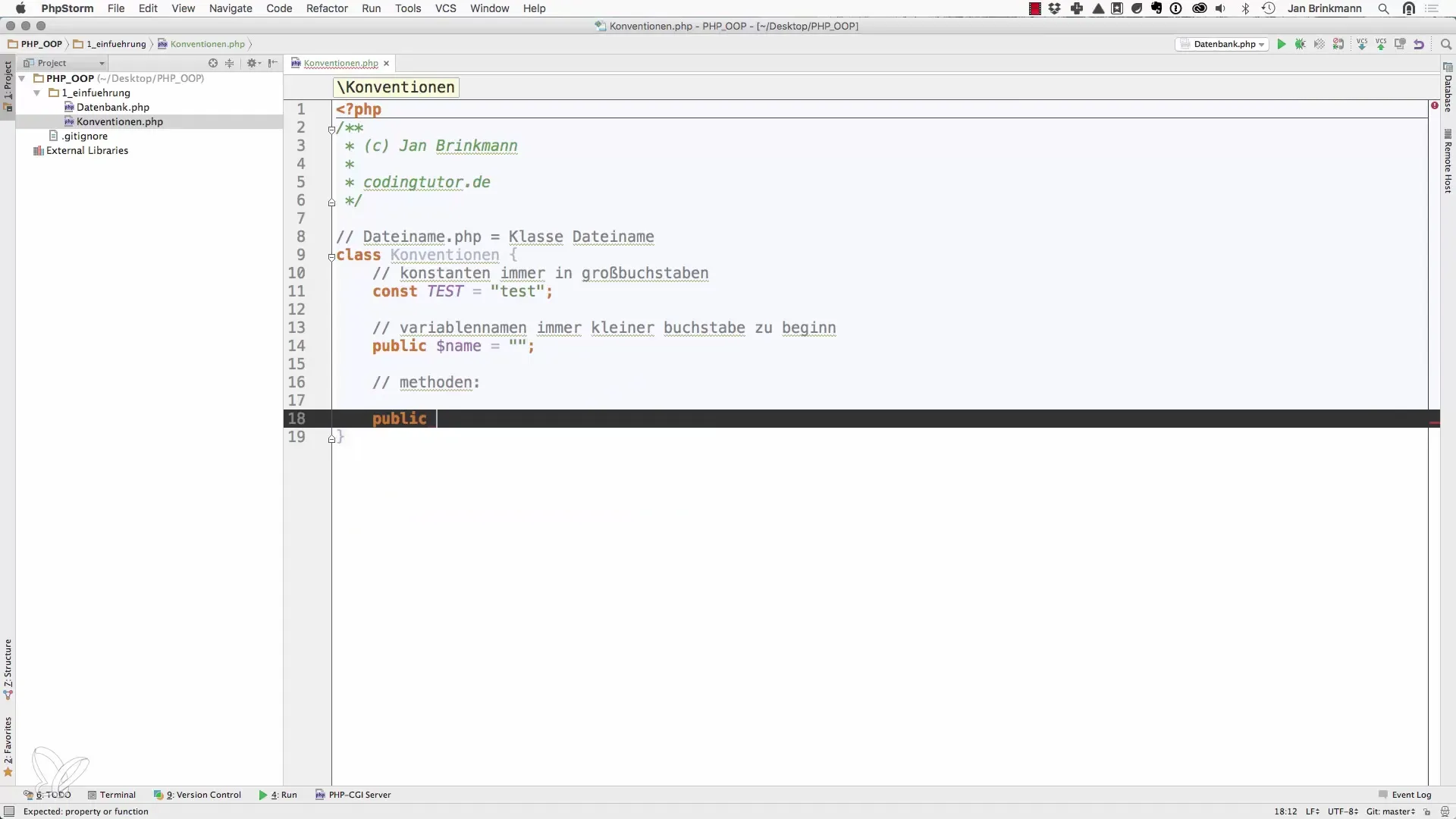
5. Camel Case Application
The use of camel case is also a widely adopted practice. This is especially true for multi-part identifiers. For example, the identifier for complyingWithConventions in camel case would look like this: complyingWithConventions. Each word after the first should begin with a capital letter to enhance readability.
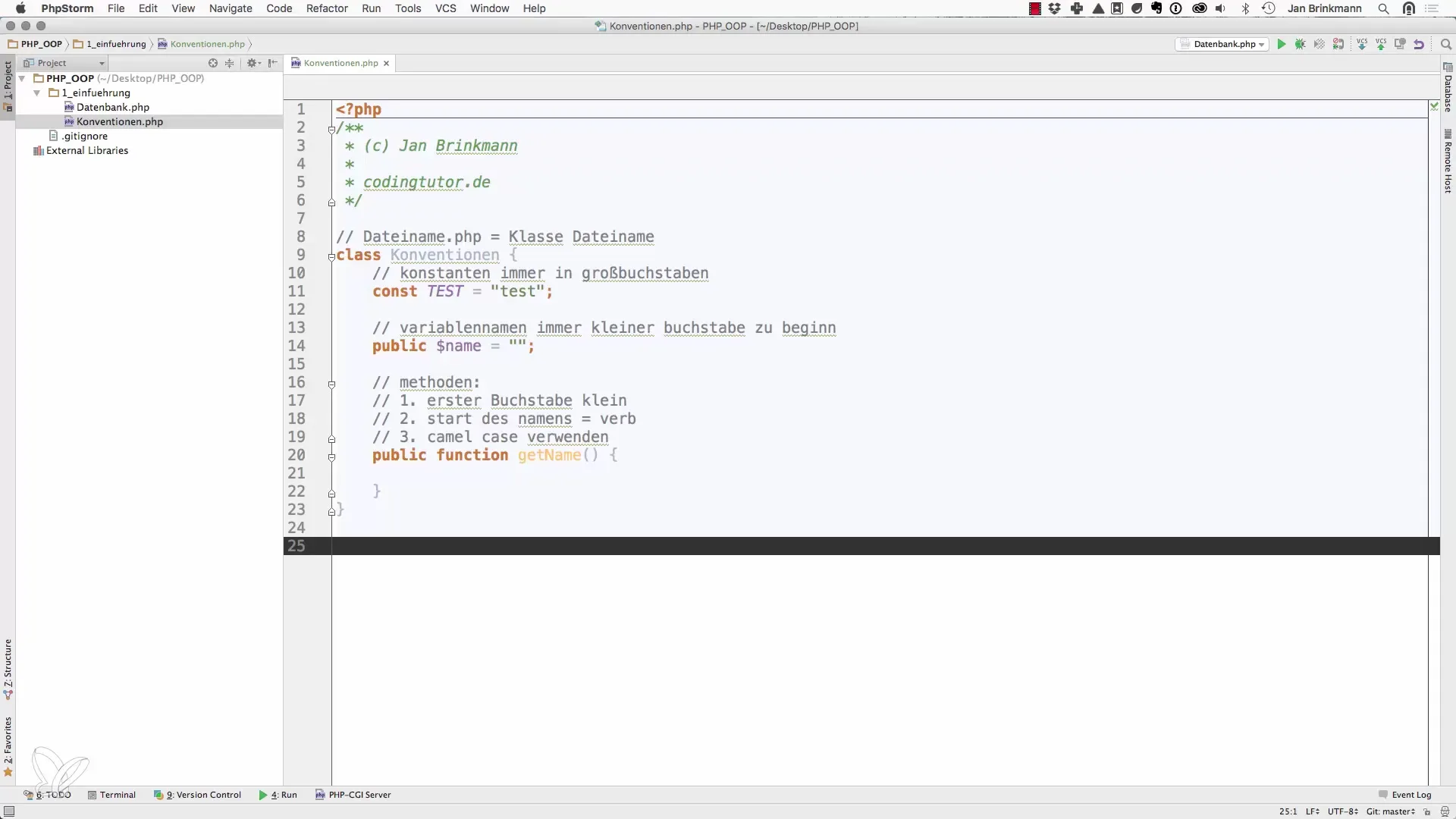
6. More Complex Names
When working with complex names, such as with a class or a method, also use camel case. For example, public function setConventions; ensures that readability is maintained and you can easily identify what it is about.
7. Adhering to These Conventions
It is advisable to follow these naming conventions from the beginning. If you embrace these principles early on, you will save yourself annoying adjustments and modifications to your code in the future. Trust that it will help you in your daily work to avoid confusion and misunderstandings.
Summary - Object-Oriented Naming Conventions in PHP
Using consistent naming conventions in PHP is of utmost importance for developing maintainable and readable software. By adhering to the discussed rules for class names, constants, variables, and methods, you will find that your code is not only better organized but also easier to understand. Implement these best practices and enhance the quality of your PHP code.


